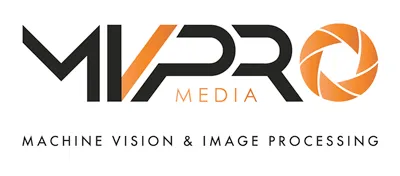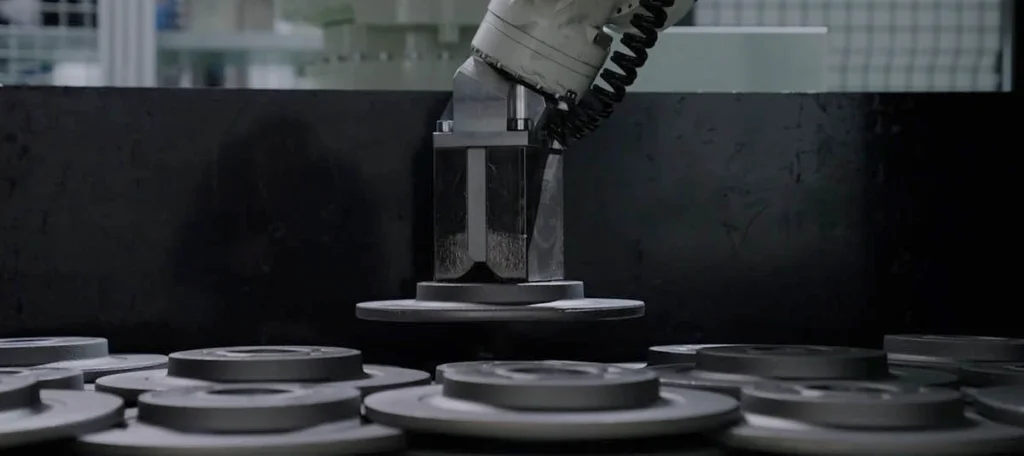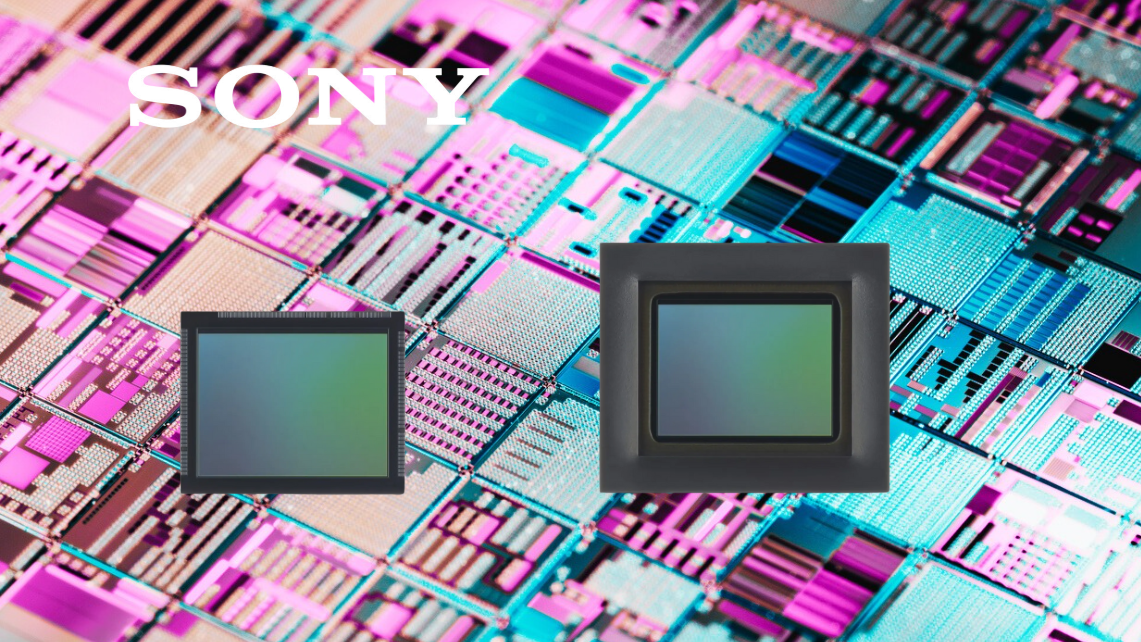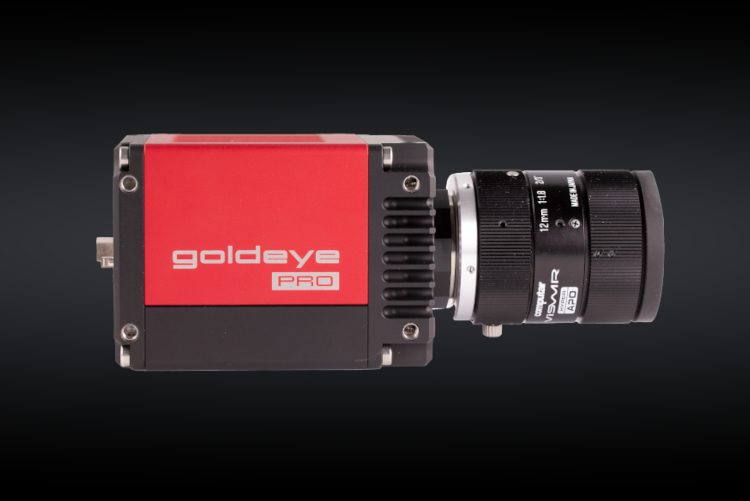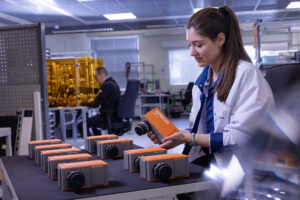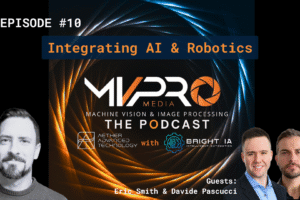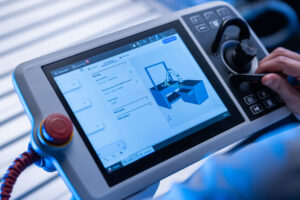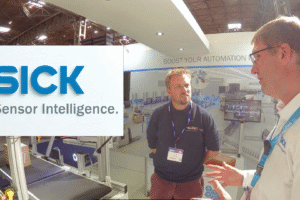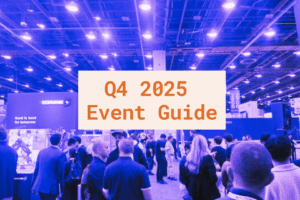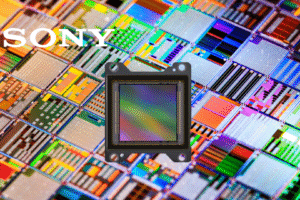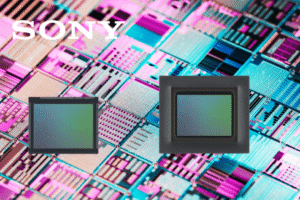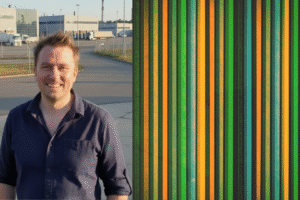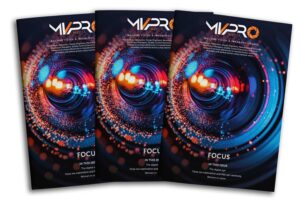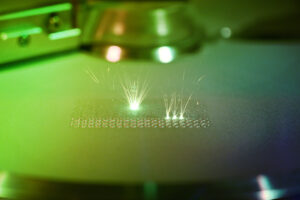Fonderia di Torbole, a respected Italian foundry known for supplying brake discs to the global automotive sector, has embraced a bold step into the future of automation. With support from robotics integrator Tiesse Robot, the company has deployed Photoneo’s advanced 3D vision technology to automate the complex and physically demanding process of handling raw brake discs. The project marks a significant milestone not just for the foundry itself, but also for the broader manufacturing industry, demonstrating how modern vision systems can take on some of the toughest industrial challenges.
Brake discs may look simple once installed on a car, but in production they present a unique problem for automation. At Fonderia di Torbole, the parts arrive in large metal bins in a completely unstructured state. Cast from iron or steel and weighing up to 15 kilograms each, they are randomly stacked and oriented in ways that make them difficult for machines to recognize. Their dark, reflective surfaces add another layer of complexity, often confusing traditional scanning technologies. Any automated solution would need not only to identify each disc with high accuracy, but also to calculate its exact three-dimensional position so a robot could approach and grip it safely. On top of this, the production line required a cycle time of less than 45 seconds to keep output on pace with demand.
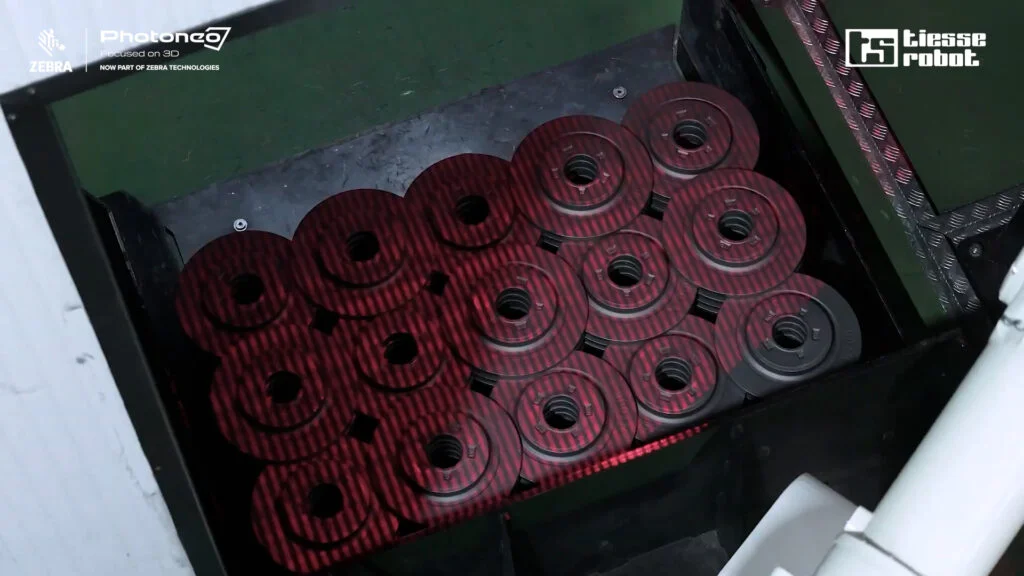
It was this combination of challenges weight, randomness, reflectivity, and speed that made brake disc handling a perfect test case for Photoneo’s technology. The integrator, Tiesse Robot, designed a system of robotic cells around Photoneo’s key innovations. Central to the setup is the PhoXi 3D Scanner XL, which uses structured light to generate a high-resolution point cloud of the bin in a single scan. Unlike conventional scanners that struggle with metallic or overlapping surfaces, the PhoXi is able to capture every contour and detail, producing a reliable map of the contents regardless of part orientation or bin complexity.
Once the scan is complete, the data flows into Photoneo’s Bin Picking Studio, the intelligence layer that transforms raw 3D information into actionable robot commands. The software identifies which discs are in a position to be picked, determines the safest approach, and calculates collision-free trajectories for the robot arm. This planning happens in real time, ensuring that the Kawasaki RS080N robot receives precise coordinates and motion instructions without delay. The robot then executes the pick-and-place task with speed and consistency, repeating the process until the bin is emptied.
For Fonderia di Torbole, the benefits of the system have been immediate. What was once a labor-intensive and physically demanding task for workers has been converted into a reliable robotic operation. Instead of manually lifting and sorting heavy brake discs, employees can now focus on higher-value activities, while the robots handle the repetitive and ergonomically challenging work. Productivity targets are not only being met but exceeded, as the system consistently maintains the required cycle time while eliminating the risk of human error.
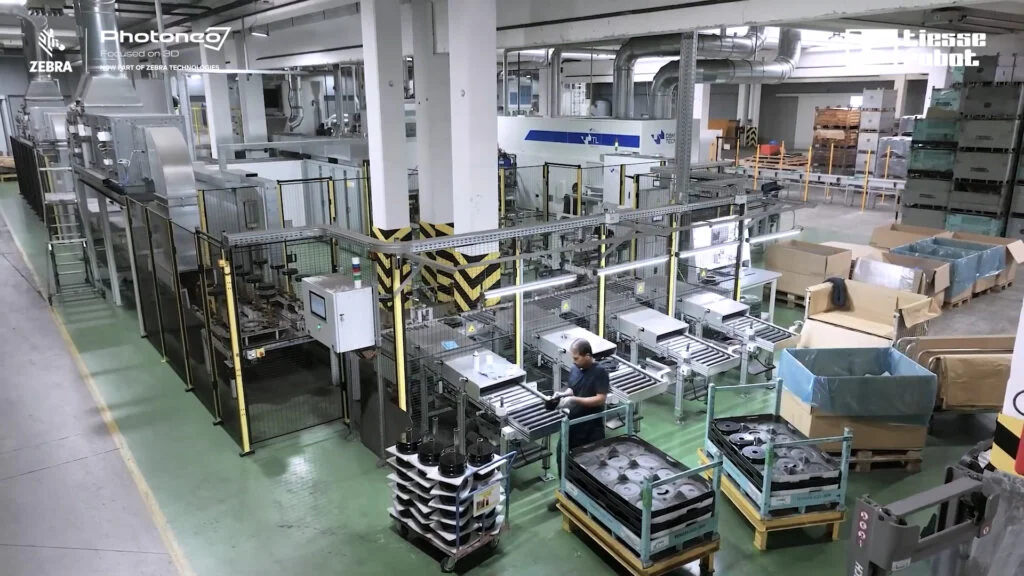
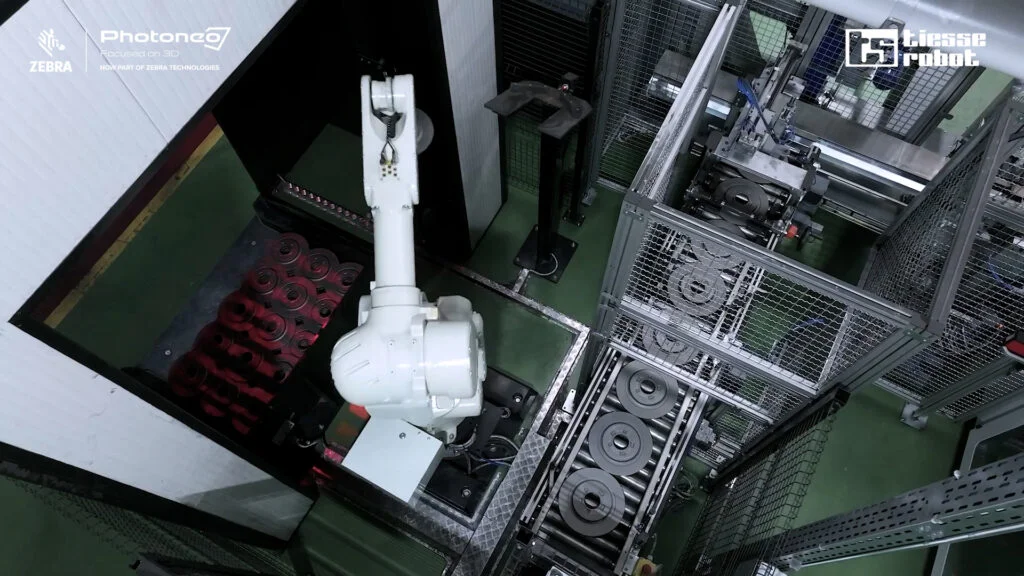
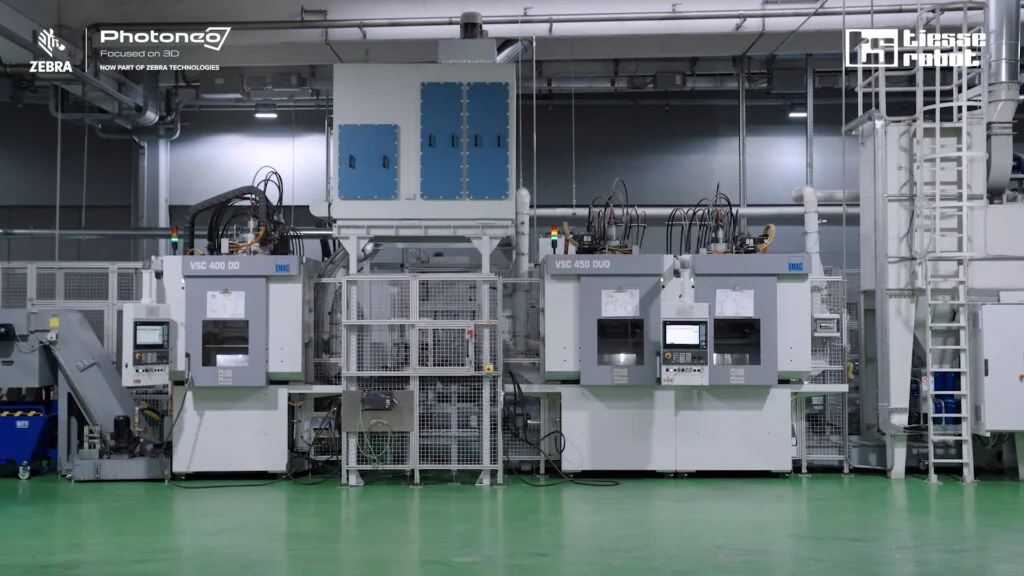
Beyond speed and safety, the solution has also delivered long-term reliability. The harsh environment of a foundry dust, heat, and constant heavy handling often tests the limits of automated systems. Yet Photoneo’s structured light technology and robust hardware have proven durable, showing that advanced 3D vision is not limited to clean, controlled settings but can thrive even under tough industrial conditions.
Industry observers see this project as a showcase of how vision-guided robotics can address some of the most difficult challenges in manufacturing. Bin picking, long considered one of the final frontiers for automation due to its complexity, is increasingly becoming a solved problem thanks to innovations like those from Photoneo. For manufacturers, the implications are wide-reaching: faster production, reduced costs, safer workplaces, and a more efficient use of human talent.
By deploying this high-speed, intelligent bin-picking system, Fonderia di Torbole has not only modernized its operations but also set an example for others in the automotive supply chain and beyond. With automation powered by vision technology, the once daunting task of handling heavy, unstructured parts has become a smooth, repeatable process. Photoneo and Tiesse Robot have shown that when cutting-edge 3D scanning is combined with advanced robotics, the future of manufacturing looks not only smarter but also far more resilient.
Read the full case study from Photoneo HERE
